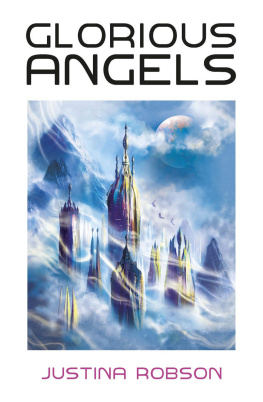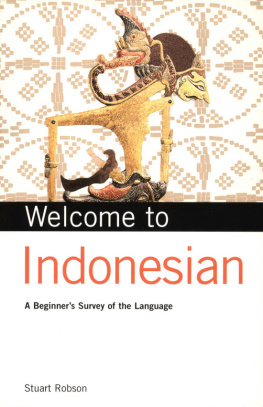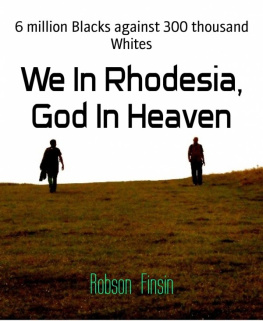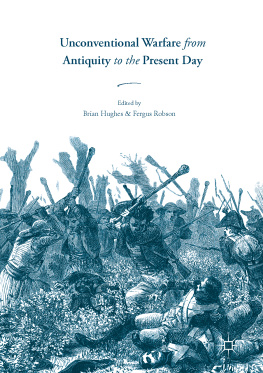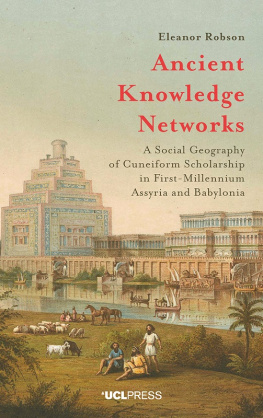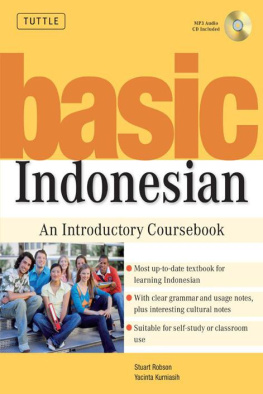Robson - Solovki
Here you can read online Robson - Solovki full text of the book (entire story) in english for free. Download pdf and epub, get meaning, cover and reviews about this ebook. year: 2004, publisher: Yale University Press, genre: Detective and thriller. Description of the work, (preface) as well as reviews are available. Best literature library LitArk.com created for fans of good reading and offers a wide selection of genres:
Romance novel
Science fiction
Adventure
Detective
Science
History
Home and family
Prose
Art
Politics
Computer
Non-fiction
Religion
Business
Children
Humor
Choose a favorite category and find really read worthwhile books. Enjoy immersion in the world of imagination, feel the emotions of the characters or learn something new for yourself, make an fascinating discovery.

- Book:Solovki
- Author:
- Publisher:Yale University Press
- Genre:
- Year:2004
- Rating:4 / 5
- Favourites:Add to favourites
- Your mark:
- 80
- 1
- 2
- 3
- 4
- 5
Solovki: summary, description and annotation
We offer to read an annotation, description, summary or preface (depends on what the author of the book "Solovki" wrote himself). If you haven't found the necessary information about the book — write in the comments, we will try to find it.
Robson: author's other books
Who wrote Solovki? Find out the surname, the name of the author of the book and a list of all author's works by series.
Solovki — read online for free the complete book (whole text) full work
Below is the text of the book, divided by pages. System saving the place of the last page read, allows you to conveniently read the book "Solovki" online for free, without having to search again every time where you left off. Put a bookmark, and you can go to the page where you finished reading at any time.
Font size:
Interval:
Bookmark:
Solovki
The Story of Russia Told Through Its Most Remarkable Islands
Roy R. Robson

Published with assistance from the Mary Cady Tew
Memorial Fund.
Copyright 2004 by Roy R. Robson.
All rights reserved.
This book may not be reproduced, in whole or in part, including illustrations, in any form (beyond that copying permitted by Sections 107 and 108 of the U.S. Copyright Law and except by reviewers for the public press), without written permission from the publishers.
Designed by Sonia L. Shannon.
Set in Joanna type by Tseng Information Systems, Inc.
Printed in the United States of America by Vail-Ballou Press.
Library of Congress Cataloging-in-Publication Data
Robson, Roy R.
Solovki : the story of Russia told through its most remarkable islands / Roy R. Robson.
p. cm.
Includes bibliographical references and index.
ISBN 0-300-10270-4 (alk. paper)
1. Solovetski Islands (Russia)History. 2. Solovetskii monastyr'History. 3. Solovetskii lager osobogo naznacheniiaHistory. I. Title.
DK511.S75R63 2004
947'.17 dc22 2003020212
A catalogue record for this book is available from the British Library.
The paper in this book meets the guidelines for permanence and durability of the Committee on Production Guidelines for Book Longevity of the Council on Library Resources.
10 9 8 7 6 5 4 3 2 1
For my parents
This is a story of labor and suffering and, I think, miracles. The Solovki archipelago has been a prism for Russia, with history somehow focusing and intensifying on these small islands nestled at the southern edge of the White Sea. I hope that an account of Solovki will help to illuminate the bigger experience of Russias past.
Hundreds of books, pamphlets, articles, and poems have been written about Solovki. Oddly, though, there has never been a single-volume historynothing tracing the broad sweep of years from the founding there of a monastery in 1429 (or from even earlier, as far back as the Bronze Age) to the twenty-first century. Perhaps this book will be a catalyst for further study, since it can in no way be the definitive treatment of such a huge subject. No doubt scholars will find deeper insights into Solovkis history based on newly emerging sources and methods of analysis. So, though many have helped me in this project, its faults remain my own. Natalia Kuziakina, in her introduction to Theatre in the Solovki Prison Camp, has contemplated the vagaries of human memory. I echo her sentiments, hoping for the leniency of readers of the book before them, for it is...bound to contain some errors of ignorance.
By way of acknowledgment, I would like to share the story of my own minor miracle. In 1996, I went to Moscow for my first summers research on Solovki. I stayed, as always, at the home of two exceptional historians, Irina Mikhailovna Smilianskaia (a specialist in the history of Palestine) and Elena Borisovna Smilianskaia (a scholar of Russian religion). Settling down in their bright kitchen, I described my new project over tea.
That weekend, Irina Mikhailovna left for her dacha. She trundled off on the train with Bekke, the dachshund who always traveled with her, to spend a few days with old friends. I did not know at the time that these ladiesall of them retired historianswould devote their evenings to discussing my new project. When she arrived home, Irina Mikhailovna announced that she had mapped out a trip to Solovki for me. She had telephone numbers, contacts, and letters of recommendation, written out longhand and stuffed into open envelopes in the Russian fashion. These senior scholars, whom I had never met, had placed their imprimatur on my work.
And so I was off, in the company of Elena Borisovna and a small crew of historians from Moscow State University. Along the way, extraordinary things began to happen. Renowned historians arrived at midnight to take our baggage after having received a letter of introduction; an artist whose husband worked on the islands contacted the monasterys own ship to take us to Solovki. We arrived safely at the monastery after a storm arose on the White Sea, leaving all the passengersexcept meseasick. On the island, there was one more remarkable episode. We arrived at the traditional beginning of the pilgrimage season, Pentecost, and spent three days studying, wandering the lakes, and taking photographs. The last evening on the island, I met a final time with the local historian A. A. Soshina. Toward the end of the evening, Madame Soshina brought out a large card file, stuffed with hundreds of citations on Solovkis Gulag history. I was stunnedI had no idea that such a bibliography existed. There was no way, however, to get a copy, no photocopy machine within a hundred kilometers.
Dont worry,' said my hostess, Ill copy out the bibliography for you.
Thats impossible,' I countered. Plus, I leave on the monastery cutter at 7 A.M. tomorrow.
Fine, my brother-in-law works on the cutter and Ill have him pick up the bibliography in the morning. Its the white nightsitll be easy to stay up. The next morning, as if on cue, a sailor called out to me as I approached the boat. He held out a sheaf of papers covered with hundreds of references. I had received yet another small miracle from Russian scholars, many of whom had aided my work without previously meeting me.
Elena Borisovna Smilianskaia has continued to be an indispensable source of information and good counsel regarding this book. Up to the last weeks of writing, she sent books, articles, and citations to me, offering her own data and ferreting out volumes published in tiny press runs and practically impossible to find in Moscow, let alone Philadelphia. Without her, I am sure that I would not have finished this study.
Since this book is aimed first at the general reader and only then at scholars of Russian history, I have cited English-language versions of Russian texts whenever they have been available. Likewise, I have used Russian texts in their most accessible versions rather than, say, the earliest imprints. There are times, especially in the early chapters of this book, when it is hard to distinguish fact from legend, saintly story from actual events. I realize that much of my version of Solovkis early years is pastiche, with bits of information gleaned from many places, and sources varying in time or intended audience. Instead of uncovering the real' Solovki (if that were possible), I am content to tell the story as it has been handed down across the generations. Tolet Solovki speak for itself, I have included long quotations from relevant documents in almost every chapter.
A note on form: in transliterating Russian, I have followed the Library of Congress convention, with a few significant departures. Starting with Tsar Peter I, I have used the English equivalents of emperors and empresses names (for example, Alexander rather than Aleksandr). Likewise, where there is a commonly used English form of a Russian place name, I have used that formMoscow rather than Moskva. I have also deleted diacritical marks (Kem rather than Kem) for the ease of readers unfamiliar with Russian. For dates, I have followed the Julian calendar until the October Revolution of 1917 (except in quotations from western sources that used the Gregorian calendar), after which I give all dates in the Gregorian calendar.
I am indebted to a number of institutions, each of which has helped to make this book possible. The International Research and Exchange Board supported the earliest stages of research through a short-term travel grant. At the University of the Sciences in Philadelphia, Dr. Robert Boughner has supported my research in innumerable ways with patience and humor. In addition, I received three grants from the University of the Sciences in Philadelphia. My research assistant, Marina Asviyan, jumped into the study of Solovki with wit and hard work, remarkably so for a fourth-year doctor of pharmacy student in professional training. The National Endowment for the Humanities honored me with a Fellowship for College Teachers, enabling me to concentrate on Solovki for an entire academic year.
Next pageFont size:
Interval:
Bookmark:
Similar books «Solovki»
Look at similar books to Solovki. We have selected literature similar in name and meaning in the hope of providing readers with more options to find new, interesting, not yet read works.
Discussion, reviews of the book Solovki and just readers' own opinions. Leave your comments, write what you think about the work, its meaning or the main characters. Specify what exactly you liked and what you didn't like, and why you think so.



